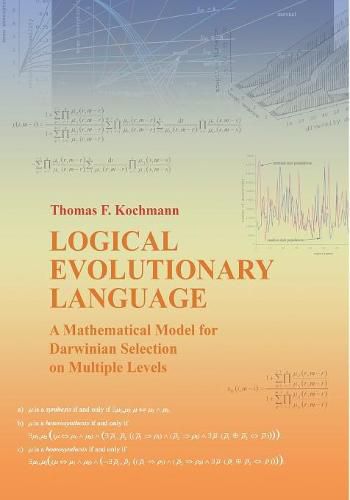Readings Newsletter
Become a Readings Member to make your shopping experience even easier.
Sign in or sign up for free!
You’re not far away from qualifying for FREE standard shipping within Australia
You’ve qualified for FREE standard shipping within Australia
The cart is loading…






This title is printed to order. This book may have been self-published. If so, we cannot guarantee the quality of the content. In the main most books will have gone through the editing process however some may not. We therefore suggest that you be aware of this before ordering this book. If in doubt check either the author or publisher’s details as we are unable to accept any returns unless they are faulty. Please contact us if you have any questions.
For many decades, a controversial discussion has smouldered about the question: What is the unit of Darwinian selection? Versatile answers have aroused among evolutionary biologists. Some attributed this role to the egoistic gene unit only (e.g. Richard Dawkins), others paid additional attention to individual organisms or groups of individual organisms (e.g. David Sloan Wilson, Elliot Sober), or even species or clade selection (e.g. Stephen Jay Gould, Niles Eldredge), ultimately leading to hierarchical principles such as multi-level-selection. Attempts to address this question mathematically have been performed, however mainly using tools and techniques of the general mathematical field Analysis (e.g. by stochastic or deterministic ordinary or partial differential equations). Contrary to all of those the author started a different approach, namely incorporating the mathematical field of Logic into the scenary, constructing a formal evolutionary framework. Many new expressions such as necessity and adaptive reaction are introduced and require some practise from the reader. For this reason a multiplicity of (molecular) biological examples is given in order to deepen their usage and understanding. In the end, they will enable the reader to turn around the original bottom-up imperative view into a much more abstract top-down declarative perspective, where evolution could be regarded as a generalized satisfiability problem of an arbitrary logical formula. This reprint of the original work from 2001 is dedicated to Stephen Jay Gould (1941-2002).
$9.00 standard shipping within Australia
FREE standard shipping within Australia for orders over $100.00
Express & International shipping calculated at checkout
This title is printed to order. This book may have been self-published. If so, we cannot guarantee the quality of the content. In the main most books will have gone through the editing process however some may not. We therefore suggest that you be aware of this before ordering this book. If in doubt check either the author or publisher’s details as we are unable to accept any returns unless they are faulty. Please contact us if you have any questions.
For many decades, a controversial discussion has smouldered about the question: What is the unit of Darwinian selection? Versatile answers have aroused among evolutionary biologists. Some attributed this role to the egoistic gene unit only (e.g. Richard Dawkins), others paid additional attention to individual organisms or groups of individual organisms (e.g. David Sloan Wilson, Elliot Sober), or even species or clade selection (e.g. Stephen Jay Gould, Niles Eldredge), ultimately leading to hierarchical principles such as multi-level-selection. Attempts to address this question mathematically have been performed, however mainly using tools and techniques of the general mathematical field Analysis (e.g. by stochastic or deterministic ordinary or partial differential equations). Contrary to all of those the author started a different approach, namely incorporating the mathematical field of Logic into the scenary, constructing a formal evolutionary framework. Many new expressions such as necessity and adaptive reaction are introduced and require some practise from the reader. For this reason a multiplicity of (molecular) biological examples is given in order to deepen their usage and understanding. In the end, they will enable the reader to turn around the original bottom-up imperative view into a much more abstract top-down declarative perspective, where evolution could be regarded as a generalized satisfiability problem of an arbitrary logical formula. This reprint of the original work from 2001 is dedicated to Stephen Jay Gould (1941-2002).